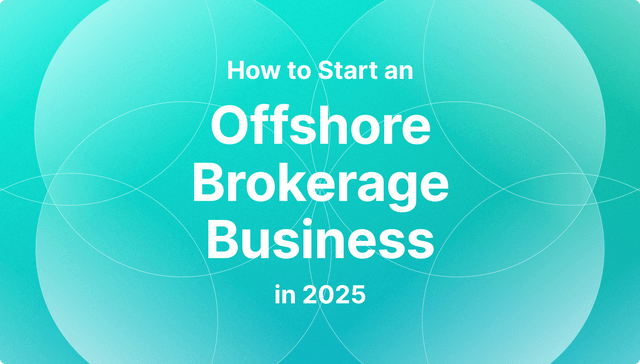Vanuatu Forex License: Costs, Requirements, and Global Opportunities

In the world of online trading, compliance and credibility may be the make-or-break factor for a brokerage. Getting a Forex license in an affordable yet reputable jurisdiction is the first big step for many companies. Next to offshore locations, one of the most appealing license centres is the island nation of Vanuatu.
With low capital requirements, rapid turnaround on licenses, and increasing reputation under the aegis of the Vanuatu Financial Services Commission (VFSC), this license provides brokers and fintech companies an effective way to get a regulated foothold and scale internationally.
Key Takeaways
- Vanuatu Forex License offers swift license approval, minimal capital requirements, and global trading licenses.
- It is appropriate for start-ups, mid-sized brokers, and fintechs that want global reach.
- Ongoing obligations include resident compliance staff, insurance, and annual audits.
What is a Vanuatu Forex License?
Vanuatu Forex License is a legal permission granted by the Vanuatu Financial Services Commission (VFSC) enabling businesses to operate legally as foreign exchange (Forex) and CFD brokerage businesses.
It enables businesses to offer trading services in worldwide financial markets such as Forex, commodities, indices, and cryptocurrencies. The license comes under the Dealers in Securities License, which is specifically intended for businesses involved in investment and trade activities.

The VFSC is the government body that regulates financial services and gives Forex licenses to operate in the Republic of Vanuatu. Since the commission began a decade ago, it has increased regulations to enhance the country's reputation as a safe haven and credible jurisdiction.
Licensees are required to adhere to the international AML (Anti-Money Laundering) and CFT (Counter Financing of Terrorism) requirements and keep their reports transparent. This allows the brokers from Vanuatu to operate legally while gaining the confidence of the international clients.
The Vanuatu Financial Services Commission needs to maintain a resident manager or director within the country for a minimum duration of six months annually to provide local supervision.
Requirements for Obtaining a Vanuatu Forex License
A Forex License for Vanuatu—officially granted as a Dealer in Securities License by the VFSC—is among the most appealing offshore licenses for financial companies and brokers. It enables businesses to offer trading services in securities, foreign exchange, commodities, and derivatives.
Further down, there is an outline of the requirements step by step, detailing every part of the process.
Classes of License and Scope of Activity
The license is not an unrestricted permission. The VFSC provides several classes of license, depending on the type of financial instruments a broker would like to deal in.

Class A allows trading in conventional debt securities such as bonds, debentures, and certificates of deposit, as well as foreign exchange business proceeds.
Class B covers derivatives, including futures and options, giving brokers the right to engage in leveraged speculative products.
More inclusive is Class C, which encompasses equities, commodities, precious metals, and rights such as warrants or depositary receipts.
The Class D is solely intended to license digital assets—but it is not a license on its own. Candidates must first be licensed under any of the other three classes before they may be eligible to add the Class D license.
This categorisation makes sure that the companies seek a license appropriate to the line of business they wish to engage in, instead of having blanket permission to do everything.
Governing Law and Regulatory Oversight
It is granted pursuant to the Dealers in Securities (Licensing) Act [Cap 70] and supervised by the VFSC. The VFSC regulates compliance, monitors current activities, and is empowered to investigate or revoke licenses should a firm contravene rules.
The regime had tightened over the past few years, especially after worldwide demands to strengthen compliance with AML (Anti-Money Laundering) and CFT (Counter Financing of Terrorism) requirements.

Thanks to the development of the Forex industry, there are numerous Forex brokers with distinct business models today, which, despite the differences, offer the same service — the opportunity for users to try their hand at trading currency pairs and other trading instruments.
04.05.23
Capital Requirements and Security Deposit
One of the core obligations is the financial deposit requirement. Every applicant must place a minimum of 5,000,000 Vanuatu Vatu (roughly USD 45,000–50,000) with the VFSC or Registrar of the Supreme Court.
This money acts as a security deposit rather than operating capital, ensuring that the license holder has a financial buffer and is serious about conducting business.
The amount must remain in place throughout the license period and can only be withdrawn upon surrendering or cancelling the license.
Physical Presence and Office Setup
Even though Vanuatu is an offshore jurisdiction, it insists that companies keep a registered office there. This office is not merely a mailing facility; it should contain corporate records, compliance arrangements, and principal management facilities.
In reality, most brokers collaborate with local service providers whose managed office facilities they use. This requirement ensures that the firms remain not merely “paper entities” but possess some degree of operational anchorage within the jurisdiction.
Personnel and Management Standards
To run a licensed Forex business in Vanuatu, the VFSC insists on having qualified and experienced management. At least one executive director must be appointed, and this person should demonstrate a minimum of five years of relevant experience in the securities or investment industry.
Besides that, a business should appoint an AML/CFT Compliance Officer (also referred to as a Money Laundering Reporting Officer, or MLRO), who should be a person living in Vanuatu.

This officer should ensure that the business operates in line with global anti-money-laundering regulations. A second or alternative AML officer should be specified, too, although the officer may be living overseas.
There is even a residency requirement for management: there must be at least one manager or director physically residing in Vanuatu for a minimum of six months annually. This requirement fortifies the ability of the regulator to keep the reins over the business and the risk that the company may be run entirely from offshore.
Professional Indemnity Insurance
Another essential condition is the obligation to secure Professional Indemnity Insurance (PII). The insurance must cover claims of at least VUV 5 million per instance with an aggregate of VUV 50 million per year, and the maximum deductible cannot exceed VUV 500,000. This ensures that, in the event of professional negligence or disputes, clients are financially protected.
The cost of such insurance varies depending on the scale of operations, but many brokers pay starting premiums of around €15,000 annually. The insurance covers directors, employees, and even consultants, which makes it a crucial safeguard for the business.
Reporting, Compliance, and Auditing
Licensees remain bound by continuous compliance requirements. This entails the preparation of annual financial statements in line with International Accounting Standards (IAS). Such statements should be audited by an approved VFSC auditor.
Beyond annual audits, companies are required to submit quarterly and annual compliance reports, outlining activities, financial standing, and client handling procedures. These reporting obligations ensure that the VFSC can monitor business health and regulatory compliance continuously, rather than relying solely on yearly reviews.
Fees and Application Process
The application requires application fees and annual license fees to be settled in Vanuatu Vatu (VT).
- The application fees for the principal license stand at VT 50,000. The annual license fees stand at VT 100,000.
- Applications for manager or other license classes cost the same.
- Annual renewal fees are owed and are the same as the license fee.
The processing timeline for applications usually ranges from 1 to 4 months, depending on the complexity of the business structure and the completeness of the documentation. Firms with straightforward ownership structures may get approval in as little as a month, while more complex entities with multiple shareholders or cross-border ties may face longer reviews.
Confidentiality and Privacy
Vanuatu maintains a strong stance on corporate confidentiality. While license holders must provide complete transparency to the VFSC about directors, shareholders, beneficial owners, and operational structures, this information is not made public. Unlike some onshore jurisdictions, company registers and shareholder details in Vanuatu are confidential, protecting investor privacy.
Costs of a Vanuatu Forex License
It requires a straightforward government license fee, an initial capital requirement, and a recurring maintenance requirement to obtain a Vanuatu Forex License, appropriately named a Dealer in Securities License.

Though occasionally labelled one of the easiest offshore licenses to apply for, the real cost scenario includes the official fees, compliance, personnel, and cost of doing business.
Application fees
The initial expense an applicant incurs is the application fee levied by the Vanuatu Financial Services Commission (VFSC), which stands at about USD 2,000. This must be paid for upon presentation of the initial documentation.
This cost is non-refundable and actually entails the price of the regulator reviewing your documentation, the conduct of due diligence investigations, and the administrative cost of dealing with the application.
Though the application cost is reasonably relative to other jurisdictions, it is just the threshold into the license application process.
Security Deposit (Paid-up Capital)
One of the most significant costs is the mandatory security deposit, which stands at VUV 5 million (around USD 45,000–50,000). This sum must be lodged either with the VFSC or with the Registrar of the Supreme Court in Vanuatu. It is not working capital; rather, it serves as a form of guarantee to demonstrate financial stability and seriousness in business operations.
The money cannot be used for day-to-day trading activities, but it remains tied up as long as the license is active. Upon cancellation or surrender of the permit, the deposit may be released, provided the company has met all obligations.
First-Year Operating & Maintenance Costs
Aside from the official government fees charged, it takes ongoing maintenance costs to run a licensed brokerage in Vanuatu. Businesses need to keep a registered local office here, which entails renting an actual address, among others.
There should be compliance structures in place. Another expense incurred is the expense of finding properly qualified staff. The VFSC requires that every licensed firm have a director with sufficient financial experience and an on-island AML/CFT compliance officer.
Most firms in practice procure these services from professional service providers on the island of Vanuatu, which constitute ongoing costs. Additional expenses involved include professional indemnity insurance mandated by the law to be maintained by the firm, which costs on average €15,000 annually depending on cover.
Accounting and auditing are annual requirements. Qualified companies must prepare financial reports under international standards and submit them to be audited by an approved VFSC auditor.
Prices of such services vary significantly, but together with local representation, office services, and insurance, the initial year expense of doing business is typically estimated to be around USD 100,000.
Processing Schedule
Not a direct “cost” per se, the time it takes to achieve approval is part of financial planning. For the country of Vanuatu, it typically takes two to four months. In the event the documentation is adequate, and the business structure is simple, the license may sometimes be issued even sooner than that.
That said, the process may extend to four months or longer if the regulator requires explanations or further compliance details. This rapidity is among the reasons why the country compares favourably to older regulatory centres.
Launch Your Forex Brokerage with Confidence
Fast-track your Vanuatu Forex License with expert guidance and full compliance support from B2BROKER.
Who Should Consider a Vanuatu Forex License?
Forex License granted by the Republic of Vanuatu pursuant to the Dealers in Securities (Licensing) Act [Cap 70] and regulated by VFSC offers affordability, speed, and flexibility. This would not be a license that fits everybody.
The value lies in who you are and where you wish to be. Let us explore the comparison of the license to the needs of three interest groups: start-up brokers, mid-size Forex/CFD companies, and fintech companies that desire worldwide coverage.
Start-Up Brokers
For market newcomers, Vanuatu offers one of the easiest paths to becoming regulated. It is a quick application process — frequently a matter of a few months — and the cost of capital is reasonable when compared to onshore jurisdictions.
Startups may acquire the credibility that comes from being licensed without having to put down half a million dollars, as Belize requires. This makes it particularly appealing to founders who intend to test their business idea under a legal regime before scaling.
That said, Vanuatu does demand substance. At least one director or manager must spend six months of the year in the country, and every firm needs a qualified compliance officer based locally to handle AML/CFT obligations.
Medium-Size Forex and CFD Brokers
For brokers already operating at scale, Vanuatu is often used as a strategic offshore hub. Many medium-sized firms rely on their Vanuatu entity to service international clients outside tightly regulated regions like the EU or UK, while retaining onshore licenses for institutional or premium segments.
The VFSC continues to demand audited accounts, four-weekly reports, and rigid AML controls, so the brokers cannot take liberties. Nevertheless, relative to thicker regimes, the day-to-day administrative drag is less onerous, allowing greater ease to experiment with new CFD products or try marketing promotions within select regions.
For mid-sized brokers, then, Vanuatu acts as an ancillary jurisdiction: not a substitute for onshore credibility building, but an agile counterpart that facilitates international client acquisition.
Fintech Companies Targeting Global Expansion
For neobrokers and fintechs hoping to include trading within a larger product suite, the island nation of Vanuatu is a highly pragmatic first move. The license encompasses a broad spectrum of instruments—currencies, securities, derivatives, and commodities—which enables the integration of trading capabilities into money apps, wallets, or super-apps.
Far more importantly, though, was the rollout by the jurisdiction of a Class D license specifically for digital assets that may be granted as an add-on when the firm already possesses one of the standard licenses (A, B, or C). This is especially appealing to fintechs considering tokenised products or crypto-adjacent services.
Multi-Jurisdiction Forex License Solutions with B2BROKER
As the online trading environment continues to be fast-paced, brokerage houses continue to recognise the scenario where it is impossible for a single license to meet the varied needs of clients, business associates, and regulatory bodies. Multi-jurisdictional licensing, on the other hand, continues to be a strategic necessity that allows brokers to grow globally but comply domestically.
B2BROKER is a reliable partner here, offering full-featured consulting services to acquire Forex licenses in several jurisdictions. Both traditional regulatory centres—the likes of the UK, EU, and Australia—and quality offshore locations like Vanuatu, Belize, Seychelles, and Mauritius fall within the scope of the company’s experience.
Each jurisdiction comes with its specific requirements about capital, compliance, reporting needs, and establishment presence. Accessing the knowledge of B2BROKER allows brokers to pinpoint the jurisdictions most favourable to their individual goals, such as immediate market entry, institutional credibility-building, or matching costs of operation to regulatory requirements.
B2BROKER’s services extend well beyond guidance. The company delivers end-to-end support, from the preparation of application documents and appointment of compliance officers to assistance with regulatory reporting and ongoing maintenance.
With direct experience liaising with regulators, financial institutions, and legal specialists worldwide, B2BROKER simplifies what is often a complex, time-consuming process.
With its multi-jurisdictional Forex license offerings, B2BROKER allows brokers to expand internationally with confidence. By combining regulatory knowledge and practical industry experience, the company ensures that clients are better positioned to meet the compliance requirements imposed by regulators and the competitive nature of the global trading market.
Interested in Partnering or Collaborating?
Over the past 10+ years, we’ve partnered with industry leaders to build solutions that set the standard in fintech. Now, we invite you to join us.
FAQ
- How long does it take to obtain a Vanuatu Forex License?
Approval usually takes two to four months, depending on the complexity of both the documentation and the company.
- What is the capital requirement?
They should deposit VUV 5 million (approximately USD 50,000) towards the security guarantee.
- Can a Vanuatu license cover cryptocurrency trading?
Yes, though just under Class D, which requires an A, B, or C license.
- Why license with B2BROKER?
B2BROKER provides multi-jurisdictional advising, application management, compliance, and reporting to bring about quicker, smoother approvals.







